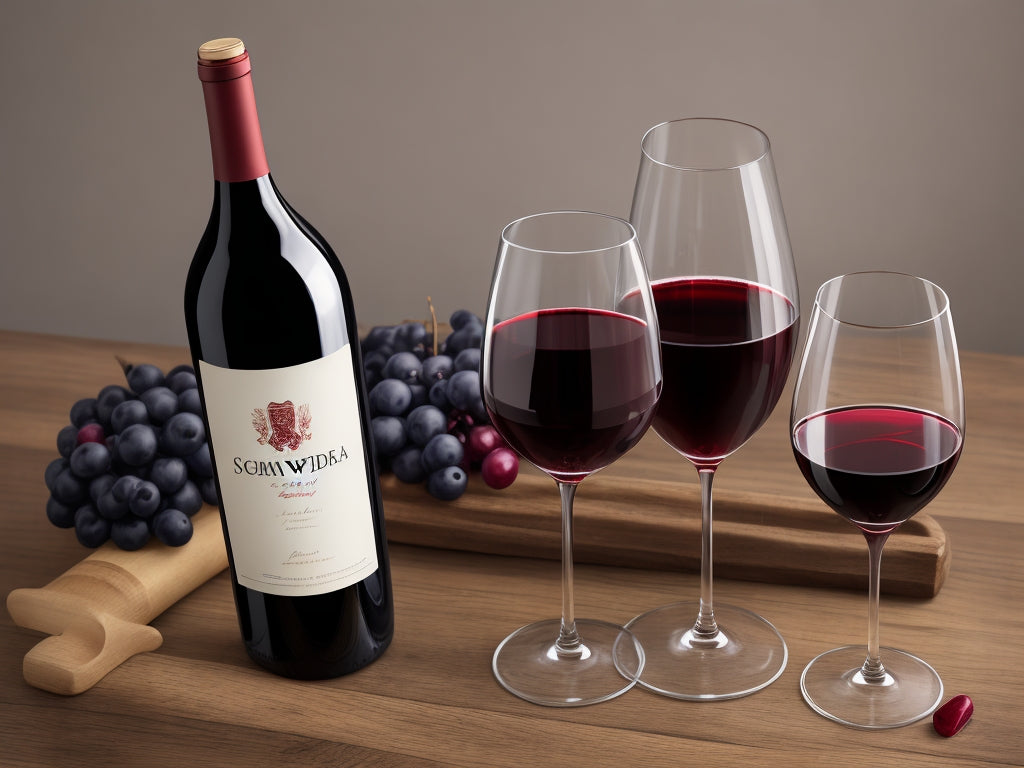What is wine?
Wine is made from fermented grape juice. The grapes are picked, crushed and put into barrels or vats for fermentation. The fermentation process converts the natural sugars in the grape juice into alcohol. Fermentation can occur naturally, but sometimes winemakers add yeast to help control the process. The crushed grapes are passed through a press to remove the skins and other sediment. Whether this step occurs before or after fermentation, and the color of the grapes, determines whether the wine becomes red or white. To make white wine, grapes are pressed before fermentation. Red wine is usually pressed after fermentation. After this step, the wine is aged in stainless steel or oak barrels until it is ready for bottling.

What is the difference between red wine and white wine?
To make red wine, however, the crushed red grapes are transferred directly to vats and fermented along with the skins, seeds, and stems. Grape skins give wine its pigment, as well as many of the unique healthy compounds found in red wine. Due to the maceration of grape skins, red wine is particularly rich in plant compounds found in grape skins, such as tannins and resveratrol. White wine also contains some of these healthy plant compounds, but usually in much lower amounts. Many different grape varieties are used to produce wine, including Pinot Gris, Syrah, and Cabernet Sauvignon.
Red grape varieties are used to make red wine, while white wine can actually be made from red or white grapes. For example, traditional French Champagne is made from red Pinot Noir grapes.
Wine is produced in many countries. Some of the major wine-producing regions are located in France, Italy, Spain, Chile, South Africa, Australia, and California in the United States.
While most regions grow multiple grape varieties, some places are known for one or two grape varieties, such as Napa Valley Chardonnay, Spanish Tempranillo, and South African Chenin Blanc.
Nutritional comparison
However, look at the nutritional content per 5 oz (148 ml) glass and you'll notice some differences:
| Red wine | Liquor | |
| Calories | 125 | 121 |
| Carbohydrates | 4 grams | 4 grams |
| Sugar | 1 gram | 1 gram |
| Manganese | 10% of RDI | 9% of RDI |
| Potassium | 5% of RDI | 3% of RDI |
| Magnesium | 4% of RDI | 4% of RDI |
| Vitamin B6 | 4% of RDI | 4% of RDI |
| Iron | 4% of RDI | 2% of RDI |
| Riboflavin | 3% of RDI | 1% of RDI |
| Phosphorus | 3% of RDI | 3% of RDI |
| Niacin | 2% of RDI | 1% of RDI |
| Calcium, vitamin K, zinc | 1% of RDI | 1% of RDI |
Overall, red wine has a slight advantage over white wine because it contains more vitamins and minerals. Still, white wine contains fewer calories.
Benefits of red wine
It may help reduce the risk of heart disease
Red wine is the secret behind the French paradox. Such is the notion that heart disease is relatively rare in France, despite a tradition of eating a diet high in saturated fat. Research has found that drinking red wine may have a protective effect on the cardiovascular system. In fact, it's been linked to a 30 percent lower risk of dying from heart disease. Part of the reason may be because wine contains compounds with antioxidant and anti-inflammatory effects. These help reduce the risk of heart disease.
It may help increase "good" HDL cholesterol
Red wine has also been shown to increase levels of "good" HDL cholesterol, which has been linked to lower rates of heart disease. One small study found that adults who drank 1-2 glasses of red wine per day for four weeks experienced an 11-16% increase in HDL levels compared to those who drank only water or water and grape extract.
It may slow brain decline
Several studies show that drinking red wine can help slow age-related mental decline. This may be due in part to the antioxidant and anti-inflammatory activity of resveratrol, an antioxidant-like compound found in red wine. Resveratrol appears to prevent the formation of protein particles called beta-amyloid. These beta-amyloid proteins play a key role in the formation of plaques in the brain, a hallmark of Alzheimer's disease.
Other benefits of resveratrol

Resveratrol has been extensively studied for its potential benefits as a supplement. In these concentrated doses, resveratrol appears to have the following benefits:
- Relieves joint pain: It prevents cartilage damage.
- Helps treat diabetes: It increases insulin sensitivity. In animal studies, resveratrol may prevent complications of diabetes.
- Extends the lifespan of various organisms: It does this by activating genes that protect against the diseases of aging.
- May help treat cancer: Resveratrol’s potential to prevent and treat cancer has been widely studied, but with mixed results.
Other possible health benefits of wine
Here are some of the main ones:
- Reduced risk of heart disease:More than 100 studies show that moderate drinking can reduce the risk of heart disease by 25-40%.
- Lower risk of death from heart disease or stroke: In a Danish study, people who drank low to moderate amounts of wine died from a heart attack or stroke compared with people who drank beer or other spirits. less likely.
- Better cholesterol levels: Moderate amounts of alcohol also appear to improve cholesterol levels.
- Reduced risk of death: Many population studies show that drinkers have a lower risk of death from various causes, including heart disease.
- Reduced risk of neurodegenerative diseases: Light to moderate drinkers are less likely to develop neurodegenerative diseases such as Alzheimer's than non-drinkers and Parkinson's disease) are also lower.
- Lower risk of osteoarthritis: At least one study found that wine drinkers have a lower risk of developing the disease than beer drinkers.
- Reduced risk of certain cancers: Observational studies suggest that drinkers may have a lower chance of developing lung cancer.
That being said, it's important to remember that these studies are observational in nature. They do not prove causation and should be taken with a grain of salt.
Disadvantages of drinking
Is red wine healthier than white wine?
If you're going to drink wine, it's clear that red wine is healthier -- or less bad -- than white wine. In other words, when it comes to health effects, red wine is the clear winner. That being said, drinking too much alcohol should never be promoted as a way to improve your health, given the huge harmful effects that drinking too much can have. Additionally, most studies showing benefits are observational in nature, meaning they cannot prove cause and effect. If you do enjoy drinking, red wine is a better choice, but limiting your drinking (or avoiding it altogether) is always the safest option. Resveratrol has been extensively studied for its potential benefits as a supplement. In these concentrated doses, resveratrol appears to have the following benefits:
- Relieves joint pain: It prevents cartilage damage.
- Helps treat diabetes: It increases insulin sensitivity. In animal studies, resveratrol may prevent complications of diabetes.
- Extends the lifespan of various organisms: It does this by activating genes that protect against the diseases of aging.
- May help treat cancer: Resveratrol’s potential to prevent and treat cancer has been widely studied, but with mixed results.














